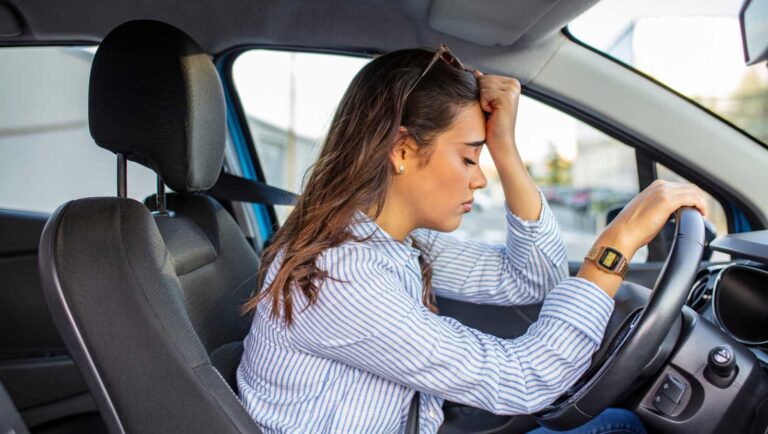Anxiety After a Car Accident
but for some people these symptoms of shock, anger or nervousness last much longer and have a lasting negative impact on the victim. This can lead to Post-Traumatic Stress Disorder, also known as PTSD, which is caused by seeing, or being involved in, an event that causes the fear of injury or death.
Effects of anxiety after a crash
These feelings can manifest themselves in different ways; some people may not feel comfortable getting back in a car at all, while others might get an overwhelming feeling of uneasiness whenever they are in a situation similar to that of their accident, for example at a stoplight or on a highway. Others might have a constant fear of death, or experience separation anxiety. Symptoms vary from one person to the next, but in all cases they can be very disruptive and prevent the victim from getting back to his or her normal self.
Some of the more common effects of anxiety include:
- fear of driving and/or riding in a car
- difficulty with sleeping
- isolation
- loss of appetite
- depression
- post-traumatic stress disorder (PTSD)
Symptoms of PTSD fall into three main categories:
- Reliving the accident, through flashbacks and nightmares
- Avoidance, becoming numb and detached
- Stress, becoming easily frightened or angry
You may also suffer from physical symptoms like dizziness and headaches.
What to do about anxiety after an accident
These factors can make it very difficult to get on with life after the accident. Symptoms of PTSD can be triggered subconsciously, in an almost instinctive reaction, making it difficult to go about your normal daily activities.
PTSD can’t be diagnosed directly – diagnosis is made based on its symptoms. There’s a similar condition called Acute Stress Disorder – or ASD – that is basically like PTSD but disappears on its own after a shorter period of time.
Treatment for PTSD can involve a type of therapy called “desensitization” where you remember and describe the event. Re-processing the event in this way can help the brain release those stressful memories. Medicines like antidepressants can also help reduce and control symptoms.
When you file an injury claim you can seek compensation for anxiety, but it can be a difficult injury to prove. You must be able to not only provide evidence that you suffer from anxiety, but that the anxiety was caused by your car accident. You’ll also need to prove that your anxiety requires medical treatment.
It’s a good idea to seek medical treatment for your anxiety as soon as possible; not only will it help you feel better, but it will help your claim if you are seeking compensation for anxiety after an accident.




